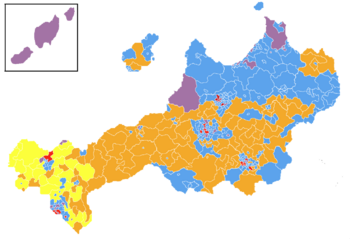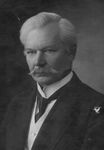1895 Weranian federal election
| |||||||||||||||||||||||||||||||||||||||||||||||||||||
All 445 seats to the House of Deputies 223 seats are needed for a majority | |||||||||||||||||||||||||||||||||||||||||||||||||||||
|---|---|---|---|---|---|---|---|---|---|---|---|---|---|---|---|---|---|---|---|---|---|---|---|---|---|---|---|---|---|---|---|---|---|---|---|---|---|---|---|---|---|---|---|---|---|---|---|---|---|---|---|---|---|
| Turnout | 16,770,583 (75.59%) | ||||||||||||||||||||||||||||||||||||||||||||||||||||
| |||||||||||||||||||||||||||||||||||||||||||||||||||||
 | |||||||||||||||||||||||||||||||||||||||||||||||||||||
| |||||||||||||||||||||||||||||||||||||||||||||||||||||
The 13th federal election was held in the Weranian Confederation for the House of Deputies (the lower house of the Bundestag) on the 15th April 1895. The first elections held since the 1891 general strike the elections were held under the new Kresinger Law which had granted universial male suffrage. The election was conducted using a plural voting system with property owners and taxpayers receiving more votes with voting being done in single-member districts elected under a first-past-the-post voting system.
The election resulted in the Liberal bloc led by incumbent premier Konrad von Höhnel to win a majority of seats and the vote. The Liberal bloc at the time consisted of right-liberals and left-liberals being only loosely considered to be a unified party doing particularly well in the north of the country, industrial centres and towns. The Catholic bloc meanwhile came second mainly through its domination of rural Cislania and Prizen. The Weranian Socialist Party came third in the vote and collectively with the Weranian Socialist Workers' Party almost were as large as the Catholics in vote share - however due to the voting system the socialists formed only a small bloc in the legislature.
This would be the last election where right-liberals won a parliamentary majority.





